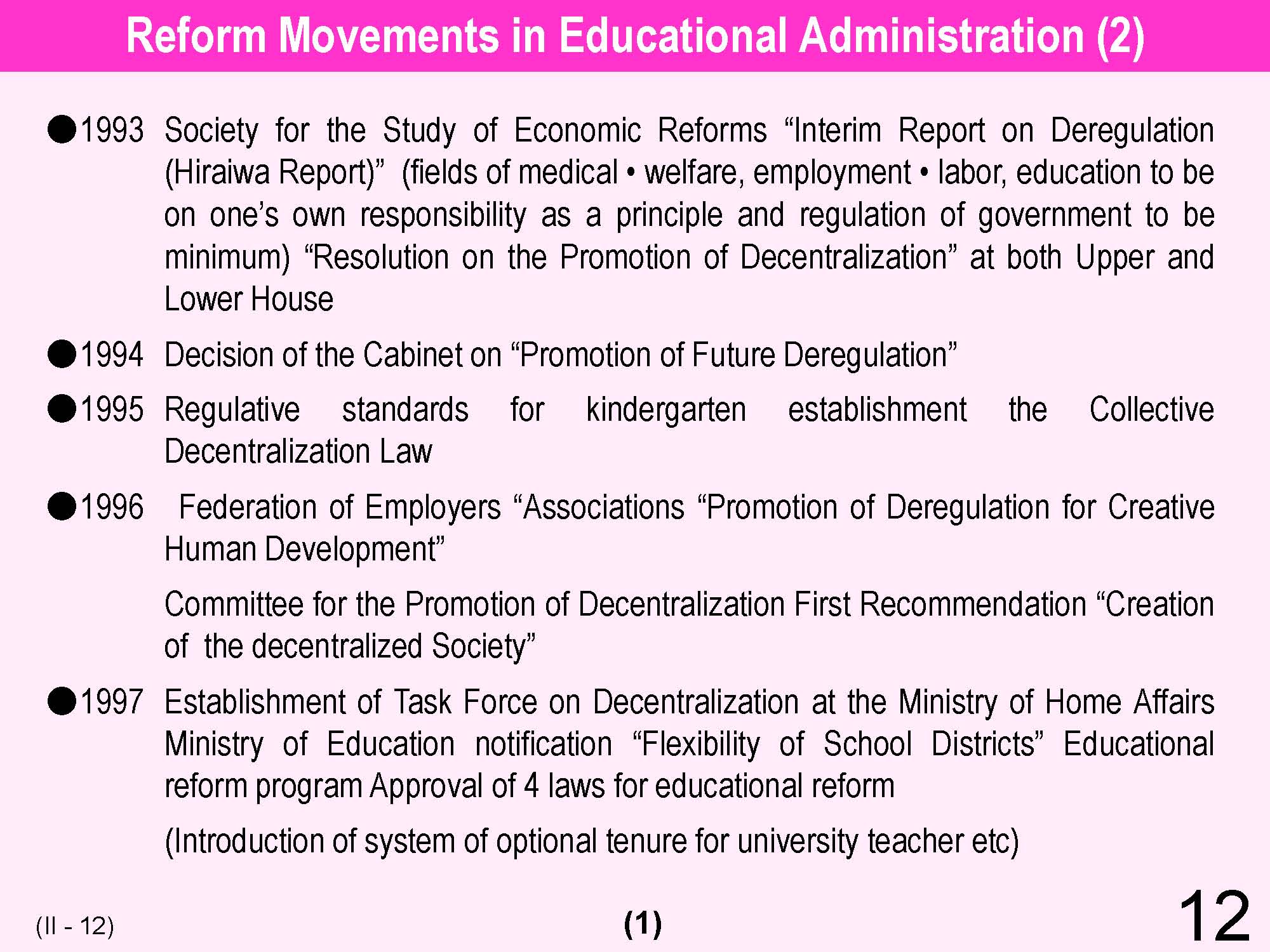| 12 | gII Japanese Educational Administration and Financeh | Previous | Next | JAPANESE |
|---|---|---|---|---|
 |
||||
| In a contemporary welfare state, where educational administration is required to actively provide education, the role of the central educational administration is strengthened and the financial burden on the state increases. As a result, reforms were needed in various aspects of educational administration and accompanying financial systems. These include ú@) the administration participation system, úA) implementation of educational plans, úB) preparation of an educational research system. A common problem of contemporary welfare states is that tax revenue levels are inversely proportional to the provision of welfare. A major feature of social reforms regarding education in developed countries during the 1980fs was deregulation. Deregulating countries entrusted their private sectors with public works projects or privatized nationalized industries, and promoted esmall government,f trying to activate their economic activities based on the principle of competition. Educational administration under a deregulation policy involves shifting the role of educational administration from a pre-regulated type to post-check-type, performing the important task of trying to maintain the public nature of services. While the educational administration of a welfare state attempts to control educational plans in order to carry out efficient educational undertakings with limited educational resources, the educational administrational approach under deregulation attempts to mobilize the energy of the private sector in order to maximize the value of money rather than educational plans, and to make effective use of competitive educational resources. | ||||
Please send your comments and concerns here
kamada@criced.tsukuba.ac.jp
Center for Research on International Cooperation in Educational Development(CRICED) University of Tsukuba
1-1-1, Tennodai, Tsukuba-shi, IBARAKI
305-857, JAPAN